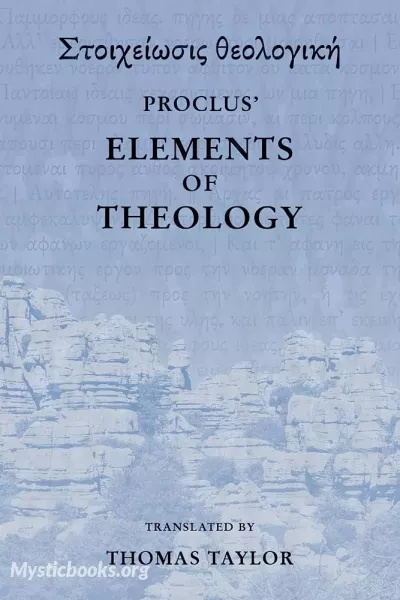
Elements of Theology
by Proclus
'Elements of Theology' Summary
"Elements of Theology" by Proclus is a comprehensive work that delves into the fundamental principles and concepts of Neoplatonic theology. Written by the philosopher Proclus, this treatise serves as a guide to understanding the nature of the divine and the structure of the universe.
The book does not follow a conventional narrative structure with characters and plot but instead focuses on presenting a systematic exploration of metaphysics, cosmology, and the nature of the divine. Proclus examines key themes such as the hierarchy of beings, the nature of reality, and the relationship between the intelligible and sensible realms.
Central to "Elements of Theology" is the concept of the One, which represents the highest form of unity and perfection. Proclus explores the emanation of various levels of reality from the One, including the divine beings and the material world. He discusses the principles of causality and the interconnections between different levels of existence.
Proclus's writing style is characterized by its philosophical rigor and systematic approach. He presents complex ideas with clarity and precision, making use of logical arguments and metaphysical reasoning. The tone of the book is scholarly and contemplative, reflecting the author's deep engagement with the subject matter.
Throughout the text, Proclus introduces significant concepts and insights that contribute to the development of Neoplatonic thought. He draws upon the works of earlier philosophers, such as Plato and Plotinus, while also presenting his own original ideas. The book provides a framework for understanding the nature of divinity, the structure of the universe, and the relationship between the human soul and the divine.
In summary, "Elements of Theology" by Proclus is a profound philosophical work that explores the principles of Neoplatonic theology. Through a systematic examination of metaphysics and cosmology, Proclus offers insights into the nature of the divine and the structure of reality. With its scholarly tone and rigorous approach, the book serves as a valuable resource for those interested in the philosophical foundations of Neoplatonism.
Book Details
Language
EnglishOriginal Language
EnglishPublished In
1963Genre/Category
Tags/Keywords
Authors
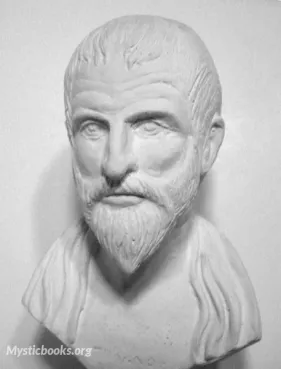
Proclus
Eastern Roman Empire
Proclus, a prominent figure in the history of philosophy, left an indelible mark on the development of Neoplatonism. With his profound principles and notable works, Proclus emerged as a distinguished...
Books by ProclusDownload eBooks
Listen/Download Audiobook
- Select Speed
Related books
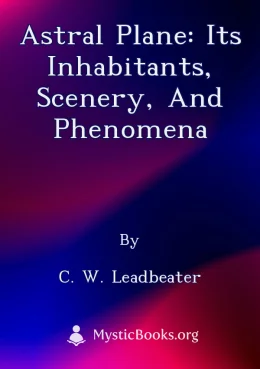
Astral Plane: Its Inhabitants, Scenery, and Phenomena by C. W. Leadbeater
This book is a guide to the astral plane, a realm of existence that is said to exist beyond the physical world. It provides information on the inhabit...

Dragons of the Air by Harry Seeley
It takes readers on an exhilarating journey into the untamed realm of prehistoric monsters that once soared through the skies. Blending scientific cur...

The Concept of Nature by Alfred North Whitehead
In The Concept of Nature, Alfred North Whitehead discusses the interrelatedness of time, space, and human perception. The idea of objects as 'occasion...
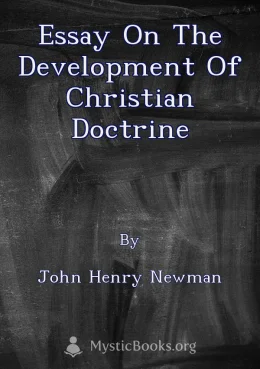
Essay on the Development of Christian Doctrine by John Henry Newman
John Henry Newman's *Essay on the Development of Christian Doctrine* is a seminal work in Catholic theology. It explores the question of how Christian...

Against Celsus Book 7 by Origen of Alexandria
Against Celsus is a Christian apologetic work by Origen of Alexandria, written around 248 AD. It is a response to Celsus's "The True Word", a scathing...

Orthodox Faith by Saint John of Damascus
The Orthodox Faith is a classic compendium of early Christian theology, written by Saint John of Damascus in the 8th century. It is considered one of...
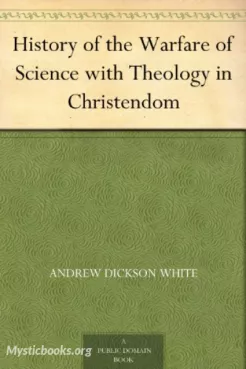
A History of the Warfare of Science with Theology in Christendom, Volume One by Andrew Dickson White
Step into the intricate world of intellect and ideology with "A History of the Warfare of Science with Theology in Christendom, Volume One." Andrew Di...

Bible (ASV) NT 11: Philippians by American Standard Version
The Epistle to Philippians (or just Philippians) is a book included in the New Testament of the Bible. It is a letter from St. Paul to the church of P...

Expository Thoughts on the Gospels - St. Matthew by J. C. Ryle
This book, a part of the "Expository Thoughts" series by J.C. Ryle, delves into the Gospel of Matthew, breaking it down into manageable sections. Ryle...

Persian Hidden Words by Bahá'u'lláh
The Hidden Words is a collection of short utterances by Baháʼuʼlláh, the founder of the Baháʼí Faith, that are intended to be a source of spiritual gu...
Reviews for Elements of Theology
No reviews posted or approved, yet...